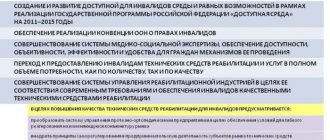Regulatory regulation
Federal Law of July 18, 2006 N 109-FZ “On migration registration of foreign citizens and stateless persons in the Russian Federation” regulates processes related to migration (obtaining a temporary residence permit, residence permit, patent)
Federal Law “On the legal status of foreign citizens in the Russian Federation” dated July 25, 2002 N 115-FZ regulates the procedure for the stay of foreign citizens
Resolution of the State Statistics Committee of the Russian Federation dated May 31, 1996 N 46 “On approval of forms for federal state statistical monitoring of external labor migration and instructions for filling them out” regulates the procedure for recording foreign labor and reporting forms for organizations
Article 18.15. “Code of the Russian Federation on Administrative Offenses” dated December 30, 2001 N 195-FZ reflects the administrative responsibility of an employer who engages a foreign citizen in activities.
Order of the Ministry of Internal Affairs of Russia dated November 1, 2017 N 827 “On approval of the Administrative Regulations of the Ministry of Internal Affairs of the Russian Federation for the provision of public services for issuing permits for the attraction and use of foreign workers, as well as work permits for foreign citizens and stateless persons” considers the procedure for issuing permits for employers using foreign labor
Dear readers! The articles describe only typical (template) situations and methods for solving them. It is worth considering that each case is unique, and solving a separate issue requires an individual approach. To find out how to act specifically in your case, we recommend using a free consultation at 7 (499) 938-80-92 for Moscow and Moscow Region, for St. Petersburg and the Leningrad region, for all other regions
Request a call back for consultation
Fill out the form below. Current lawyers will contact you within 15 minutes regarding your question.
Foreigners payroll taxes 2021
Schematically, it looks like this: each type of economic activity is assigned a class of professional risk, and each class has its own insurance tariff. Thus, it turns out that the amount of contributions will directly depend on the employer’s field of activity.
- Payments under employment contracts. Charge insurance premiums?
- 5 main innovations for filling out travel forms from 2021
- Guide to insurance premiums: who pays for what
- Tax digest No. 40. New profit declaration and letters about expenses
- Company accounting policy: when to add and when to change
- Digest of changes No. 35. Changes according to the simplified tax system
Republic of Dagestan (1.5) 3112
Republic of Ingushetia (2.2)
0000
Republic of Kabardino-Balkaria (2)
4150
Republic of Karachay-Cherkessia (1.6)
3320
Republic of North Ossetia-Alania (1.43)
2967
Chechen Republic (1)
0000
Stavropol Territory (1.82)
3776
- engage in business under the patent taxation system;
- are considered to be highly qualified specialists;
- recognized as refugees, regardless of whether they have citizenship of another state or not, and those who have been granted temporary asylum;
- work on ships registered to Russian ports and operating under the Russian flag;
- have citizenship of a country that is part of the EAEU (Kazakhstan, Belarus, Armenia and Kyrgyzstan) - in accordance with Art. 72 of the Treaty on the EAEU, adopted in May 2014.
- If the salary of a foreign worker in St. Petersburg is less than 30,500 rubles, the personal income tax refund to the foreign worker is due in the amount that the employer must pay. Those. with a salary of 30,000, personal income tax reimbursement to a foreign employee under a patent is made in the amount of 3,900 (13% * 30,000), since this is the amount that the employer withholds when paying the employee’s income tax.
- If a foreigner’s salary is more than 31,000 rubles, 13% of personal income tax withheld by the employer is from 4,030 rubles, and the foreigner pays 4,000 rubles monthly, which means that in this case, the return of personal income tax under a patent to a foreigner can be made for the full amount of the advance payment in in the amount of 4000 rubles, since 13% personal income tax is greater than the amount of the advance payment (13% * 31000 = 4030 > 4000). And then only the part that is greater than the amount of the advance payment is withheld from the salary, in this case 30 rubles;
According to the norms of Russian legislation, when concluding an employment contract or a GPC agreement with a foreigner and when dismissing him, it is necessary to notify the Ministry of Internal Affairs (FMS), otherwise, as we have already found out, it is realistic to receive a FMS fine for a foreign citizen. That's why our client does it. However, one notification costs him about 1,500 rubles, which ultimately amounts to a large sum. It is clear that it is necessary to notify about the conclusion of such an agreement, but what about termination?
A civil contract with a foreigner has a certain procedure for concluding. This process involves reaching agreement on all essential terms, and if at least one of them does not reach consensus, the agreement is considered unfulfilled. It is important for employers to understand what consequences await them if they did not notify the FMS about the conclusion of an agreement: large amounts of fines for each foreign citizen (and if there are 200 of them, for example, as in the situation with our client).
1 When do you still need to notify the Ministry of Internal Affairs about your dismissal (termination of civil employment)? 2 When is this considered termination? 3 Is it necessary to terminate this agreement at all? 4 Or, for example, foreign citizens left the country because their patent had expired, then they made a new one and continue to work, can this be done? Or is it necessary to conclude a new contract? 5 Can such a contract be endless? After all, foreigners can constantly work for him, and he will pay them if there is work.
c) when concluding a civil contract with an individual, it should be understood that he is not entitled to the guarantees provided for by labor legislation (these are guarantees for payment of wages, for sick leave or vacation pay, for combining work with training, etc.);
We recommend reading: Apartment Owned Less Than 3 Years Sales Tax
Another type of employment contract with individuals is an agreement for the provision of paid services. Any performer performs a service (medical, informational, veterinary, consulting, auditing, etc.), for which the customer pays a fee. In this case, payment is made upon signing the acceptance certificate.
How is the registration of foreigners different?
The general rules for the employment of persons who come to the country are prescribed in Chapter 50.1 of the Labor Code of the Russian Federation. They do not apply to migrants from Belarus, Armenia, Kyrgyzstan, and Kazakhstan, since these states, together with Russia, are members of the EAEU.
An employment contract with a foreigner (a sample of 2021 for downloading is presented below) is allowed to be concluded with persons over 18 years of age. The employer is obliged to draw up a document in Russian and, if necessary, translate it into a language understandable to the new employee.
The agreement with the migrant has traditional sections. It indicates the date and place of activity, working hours, obligations and rights of the parties, wages and other payments, and the duration of the contract. In addition, in accordance with Articles 327.2 and 327.3 of the Labor Code of the Russian Federation, the contract must include information from:
- work permits;
- patent;
- temporary residence permits;
- residence permit.
We suggest you read: Review on the topic of fraud
About the content of contracts
Since the legislator has not provided a standard civil process agreement with a foreign citizen in the regulatory legal framework, a sample of such an agreement can be created by the customer of the work/services independently. And yet, there are mandatory information that must be present in the contract concluded with a foreigner. These include:
- status and information:
about the customer - full name, passport details, current registration information (for an individual), full name of a representative acting on behalf and on behalf of the company without a power of attorney, full name of the company and its registration data - TIN, OGRN, address (for a legal entity);
- about the performer - full name, details of the identity document (national passport), information about the document legalizing the presence of a foreigner on the territory of Russia and giving the right to carry out labor activities;
- for construction contracts - this is the subject of the agreement, precisely established initial and final deadlines for the fulfillment of obligations under the agreement (if necessary, intermediate deadlines are also indicated if the terms of the agreement provide for the phased fulfillment of obligations);
How long is the contract valid?
In agreements with foreigners, it is important to take into account the planned period of cooperation. According to Art. 327.1 of the Labor Code of the Russian Federation, the contract may not specify the specific date of dismissal, making it indefinite. If an employee is invited to seasonal or temporary work, a fixed-term contract is drawn up. All cases where it is appropriate are listed in Art. 59 Labor Code of the Russian Federation.
The agreement of the parties is terminated if the migrant is no longer allowed to work or live in the Russian Federation. This provision does not apply to citizens of member countries of the Eurasian Union, because, in accordance with paragraph 5 of Article 97 of the Treaty on the Eurasian Economic Union of May 29, 2014, the period of temporary stay of a worker of a member state and members of his family on the territory of the state of employment is determined by the validity period his employment contract.
Extension of an employment contract with a foreign citizen is possible according to the general rules if he restores permits. In this case, the working relationship can be restructured by concluding an additional agreement to the contract.
We suggest you read: What to do if the equity participation agreement is not registered
Required documents
The package of documents accompanying the conclusion of a civil process agreement with a foreign citizen depends on his status, reasons for staying in the Russian Federation and country of citizenship. There are various options.
In addition to these documents, in some cases others are also requested:
- documents on education or confirming qualifications (diploma, certificate, specialist certificate, etc.), if the provision of services requires special knowledge and skills;
- license, if, within the framework of the legislation of the Russian Federation, the service relates to licensed types of activity;
- certificate of membership in the SRO (if necessary);
- driver's license - for the provision of transport services. Only Russian or international licenses are suitable.
At the same time, educational documents issued outside the Russian Federation must undergo nostrification (recognition) and have a notarized translation.
Please note that if the contractor does not have SNILS, the customer is also allowed to register it by sending a special form to the Pension Fund. And the TIN, if it did not exist previously, is assigned by the Federal Tax Service automatically upon the first receipt of personal income tax withheld by the agent.
Special opinion
Alina Larina
Senior lawyer, Department of Methodology and Audit, Unistaff Peyrol Company LLC
Violations involving foreign workers are fraught with heavy fines for the employer, so companies are especially careful to comply with the legislation for this category of workers. The situation in which an employee loses his foreigner status and acquires Russian citizenship is not directly regulated by law.
Article 327.6 of the Labor Code of the Russian Federation
does not contain such grounds for dismissal as obtaining Russian citizenship. Therefore, it is possible to conclude an additional agreement indicating new employee data. The law does not require notifying the Ministry of Internal Affairs.
Notification of the Migration Service
A person who has entered into a civil liability agreement with a foreigner is obliged to notify the Federal Migration Service about this. This requirement is regulated in paragraph 8 of Art. 13 FZ-115.
To do this, the customer will need to draw up a special notice. To fill out, use the form specified in the appendix. 3 orders of the Ministry of Internal Affairs No. 363 dated June 4. 2021
The contents of the document indicate:
- the full name of the department of the Ministry of Internal Affairs to which the notification is sent;
- information about the organization, individual enterprise or individual acting as the customer (name or full name, registration number of their Unified State Register of Legal Entities, Unified State Register of Individual Entrepreneurs or passport data, TIN number, customer status);
- the address of the place where the obligations under the agreement will be performed;
- information about the performer (full name, gender, current citizenship, date and place of birth, name of the personal identification document, its number and date of receipt);
- information about the profession or type of activity of the performer;
- date of conclusion of the GPC agreement;
- date of preparation of the notification and his handwritten signature.
Sample form used to draw up a notification:
obrazec_uvedomleniya_1.png
obrazec_uvedomleniya_2.png
obrazec_uvedomleniya_3.png
Sanctions for violating the notification rules
If the customer does not send a notification or does so without complying with the regulated deadlines, then he will be held accountable in accordance with Parts 3 and 4 of Art. 18.15 Code of Administrative Offenses of the Russian Federation. The following sanctions are possible:
- citizens - a fine of up to 5 thousand rubles;
- employees of the organization responsible for the violation - a fine of up to 50 thousand rubles;
- companies – a fine of up to 800 thousand rubles. or suspension of activities for a period of up to three months.
If the violation was committed in Moscow, St. Petersburg, the Moscow or Leningrad region, then the amount of fines increases:
- citizens – 5-7 thousand rubles;
- employees of the organization responsible for the violation - 35-70 thousand rubles;
- companies - 400-1000 thousand rubles. or suspension of activities for three months.
Formation of a contract with a foreign citizen
The contract is concluded in simple written form. The form of the contract is not fixed by law. In practice, the basic information reflected in the contract is determined. Provided that one party is a foreign citizen, the following sections are included in the contract:
- preamble - the introductory part of the contract, which reflects information about the parties to the contract (the citizenship of the foreign worker and the right to use the labor of foreigners are indicated, and the foreign contractor is given a patent, temporary residence permit
- subject of the contract – determines the types and scope of work under the contract, the address for the work to be performed
- deadlines – necessarily reflect the beginning and end of the work
- rights and obligations responsibility of the parties
- price (amount) of the contract and payment procedure (including conditions for accepting work)
- conditions for termination of a contract
- procedure for resolving disputes (through negotiations or consideration in arbitration court)
- other conditions (at the request or additional request of the parties, they are specified in the contract)
- signatures and details of the parties
A correctly drawn up contract will allow the parties to the contract to avoid fines, sanctions and administrative penalties. Involving a foreigner in work under a contract requires compliance with the norms of both civil, migration and tax legislation.
GPC agreement with a foreigner: about the form, structure, features
The legal system distinguishes several types of GPC agreements concluded in various situations with migrants, however, the most common in this group are contract agreements and agreements for the provision of services (one-time or systematic).
The subject of such agreements is the performance by a migrant of specifically designated types of work or provision of services.
The forms of GPC agreements for the performance of work or provision of services concluded with foreign individuals have not been standardized by current legislation, therefore they do not have a unified template.
In its structure, the GPC agreement with a foreign citizen does not have significant differences with similar agreements concluded with citizens of the Russian Federation. However, some features are still present in this document. So:
- a GPC agreement with a migrant can be concluded only on the condition that his presence on the territory of the Russian Federation is legalized and he has the right to work (for example, a GPC agreement can be signed with a foreign citizen under a patent, or if he has a work permit);
- information about the availability of a patent for the right to work (or a work permit) is stated in the preamble of the contract;
- a contract with a foreigner must not only indicate its subject matter, but also the deadline for completing the ordered work, and in the contract concluded for the provision of services by a migrant, it is necessary to specify both the type of services and their cost;
- contract agreement, in accordance with paragraph 1 of Art. 420 of the Civil Code of the Russian Federation, can be concluded with either one or several individuals with foreign citizenship at the same time.
In the case of a “brigade” contract format:
- in its installation part (preamble) all performers should be listed,
- Each foreigner listed as a performer of work must put his signature on the agreement, and upon completion of the work, on the acceptance certificate.
Please note: work contracts concluded with a foreigner must indicate the end date of their validity. This date cannot exceed the calendar limit for the permitted stay of a foreigner in Russia. What does this mean:
- For foreigners who have received a patent or work permit, migration authorities establish a period of stay on the territory of the Russian Federation. After this period, the migrant is obliged to leave Russia, and all agreements concluded with him are considered void.
- Cooperation under a GPC agreement with a foreigner beyond the established period of stay in Russia (after which his stay is considered illegal) is a direct violation of current legislation and entails liability for the customer of the work (services).
Answers to common questions
Question No. 1: What punishment will be imposed on an organization that does not have permission to hire foreigners for work?
Answer: In accordance with Article 18.15 of the Code of Administrative Offenses of the Russian Federation - entails the imposition of an administrative fine on citizens in the amount of 2000 to 5000 rubles; for officials - from 25,000 to 50,000 rubles; for legal entities - from 250,000 to 800,000 rubles or suspension of activities for a period of 14 to 90 days.
Question No. 2: For how long can a contract be concluded with a citizen working under a patent?
Answer: It is advisable to conclude an agreement before the expiration of the patent, otherwise the foreigner may not renew the patent and not complete the work
What documents are required from a foreign citizen
To legally conclude a civil contract with a foreign citizen, documents are required. The customer is obliged to request a complete package of papers from the migrant, otherwise it is dangerous to sign the agreement. The customer will be held administratively liable under Parts 1 and 4 of Art. 18.15 Code of Administrative Offenses of the Russian Federation.
What to request from a migrant temporarily staying in Russia to register a DPPC:
- Passport or other document confirming the identity of a foreigner.
- Work permit or patent with a valid period. Please note that citizens of the EAEU will not require a patent or permit.
- A document (certificate, diploma, certificate) of education confirming qualifications or the presence of special knowledge necessary to perform work or services. Mandatory if work or services on DHPC require special education (skills, knowledge).
- Visitor's migration card or visa.
If a visitor resides temporarily or permanently in Russia, then the list of documents for drawing up an agreement with a foreign citizen is somewhat different. Such a person is required to:
- passport of a foreign citizen or other identity document;
- temporary residence permit (TRP) or residence permit (RP);
- ADI-REG extract confirming registration in the individual (personalized) accounting system, including in the form of an electronic document (or SNILS, issued before 04/01/2019);
- certificate, diploma, certificate or other educational document confirming qualifications or the presence of the necessary skills.
Before concluding an agreement with a foreign citizen, check the documents. Papers drawn up in foreign languages will have to be translated into Russian and the translation notarized.









